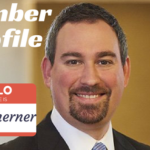A District Court judge in New Jersey has upheld a summary judgment ruling in favor of the plaintiff in a lawsuit that alleged the defendant did not conduct a “meaningful attorney involvement” before deciding to file a lawsuit against the plaintiff to recover an unpaid debt. The case, Bock v. Pressler & Pressler has been a closely watched case since it was filed nearly six years ago.
A copy of the district court ruling is available here.
This case has had a long and winding road through the legal system, both at the District Court level in New Jersey and in the Third Circuit Court of Appeals.
The District Court has upheld the summary judgment in favor of the plaintiff, Daniel Bock. The defendant can now appeal the ruling back to the Third Circuit, if it so chooses. The plaintiffs are expected to file a motion to cover attorney’s fees, which could range into the hundreds of thousands of dollars, given the amount of time the case has been around.
The case started back in 2011 when Midland Credit retained Pressler to collect on an eight thousand dollar debt owed by Bock. Pressler tried to collect the debt and was not successful. The account was subsequently transferred to a different department within the firm to determine whether a lawsuit could, and should have been filed against Bock to try and collect on the debt. A Pressler attorney spent four seconds reviewing the case before determining to proceed with the suit. The attorney reviewed 673 cases that day, deciding to move forward on 663 of them.
While that action was pending, Bock filed his own lawsuit against Pressler, alleging a violation of the Fair Debt Collection Practices Act, specifically, that the attorney who reviewed the account prior to determining whether to file the original lawsuit did not spend enough time before making a decision. The district court granted a summary judgment in favor of the plaintiff. The decision was appealed to the Third Circuit.
While the suit was pending before the Third Circuit, the Supreme Court heard arguments in the case of Spokeo, Inc. v. Robbins. The Supreme Court ruled that an injury must be “concrete and particularized” in order for an award to be considered. The Spokeo ruling raised the bar for plaintiffs to prove actual harm in order for damages to be warranted.
In light of the Spokeo ruling, the Third Circuit decided to vacate the summary judgment and remand the case back to the District Court to determine whether it still had standing.
The District Court judge has aligned with Bock in deciding that a “substantive” violation of Section 1692e of the FDCPA has occurred, while Pressler has argued that a “bare procedural” violation exists.
Here, the deceptive implication that an attorney was meaningfully involved in the preparation of the collection complaint against Bock violated that substantive right and created a particularized and concrete injury.
Barron & Newburger, which represented Pressler & Pressler in this case declined a request for comment.









